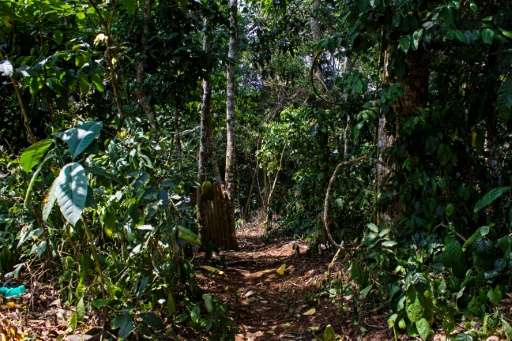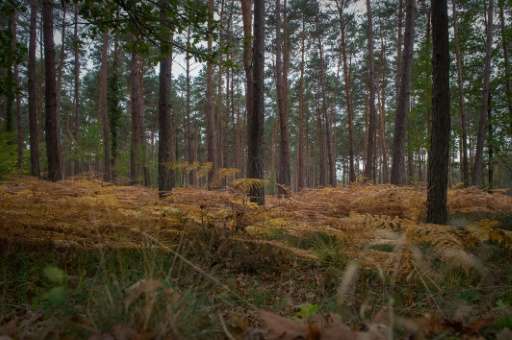Plants won't boost global warming as much as feared: study

Vegetation will release far less extra carbon dioxide in a warming world than previously assumed, giving humans a bit more room in the fight against climate change, scientists reported Wednesday in Nature.
Despite this good news, efforts to curb greenhouse-gas emissions must still be stepped up to avoid dire climate impacts, the researchers cautioned.
Earth's plants and soil microbes absorb and exude huge quantities of heat-trapping CO2, the main driver of global warming.
Over the course of a year, land-based flora emit—in a process called respiration—117 to 118 billion tonnes of carbon into the atmosphere, six times as much as humans release by burning fossil fuels.
At the same time, through photosynthesis, they soak up about 120 billion tonnes.
This two-to-three billion tonne surplus makes the terrestrial plant kingdom a "net sink" for CO2 that removes up to 30 percent of human-generated carbon pollution from the air.
But there's a problem: when air temperatures climb, plants start to "exhale" extra CO2 with no change in the amount absorbed.
"All it would take is for global respiration to increase by three percent to shift the land surfaces from a 'sink' to a 'source'," Peter Reich, lead author of the study and a professor at the University of Minnesota, told AFP.

Earlier experiments had shown that leafy trees exposed to a temperature increase of three-to-four degrees Celsius (5.4 to 7.2 degrees Fahrenheit) would quickly begin to pump out an additional 20 percent of carbon dioxide or more.
Code-named 'B4Warmed'
In December, the world's nations agreed in Paris to hold the rise in global surface temperatures to "well below 2.0C (3.6F)", but we are currently on track for an increase possibly twice that size by century's end.
Computer models used by climate scientists to project changes in greenhouse gas emissions "assume respiration"—the output of CO2—"increases over the long-term the same way it does over the course of a few hours," Reich said.
But nobody had bothered to verify if this was actually true.
To find out, Reich and colleagues set up a heated environment in the wild in 2009 for some 1,200 trees that included the 10 dominant North American temperate-zone species.
In an experiment—codenamed "B4Warmed"—lasting five years, they kept temperatures at 3.4C (6.1F) above seasonal averages.
To their surprise, the researchers discovered that—over the long haul—all 10 species acclimated, or adapted, to their new conditions.
Carbon dioxide output increased by only five percent rather than the 23 percent predicted under earlier models.
"Acclimation eliminated 80 percent of the increase," Reich said in an email exchange.
This suggests that "the associated increase in atmospheric CO2 concentrations from global warming may be much less than anticipated."
Though significant, this does not lessen the pressure to cut carbon pollution, he warned.
"The problem we created in the first place with our greenhouse gas emissions still exists."
Pierre Freidlingstein, a climate modelling expert at the University of Exeter in England, said the study did, indeed, show that leafy trees adjust to warming temperatures.
But he cautioned that the implications may be less important than advertised.
"This paper is not a game changer" when it comes to global warming, he said.
While Earth's living forests take up more CO2 than they give off, deforestation poses a double threat: Trees release stored-up CO2 when cut down and burned, and reducing the surface area covered by forests means fewer plants remain to absorb CO2.
An area of woodland twice the size of France has been lost to deforestation in the last 25 years, mainly to expanding agriculture and urbanisation.
More information: Nature, nature.com/articles/doi:10.1038/nature17142
Journal information: Nature
© 2016 AFP





















